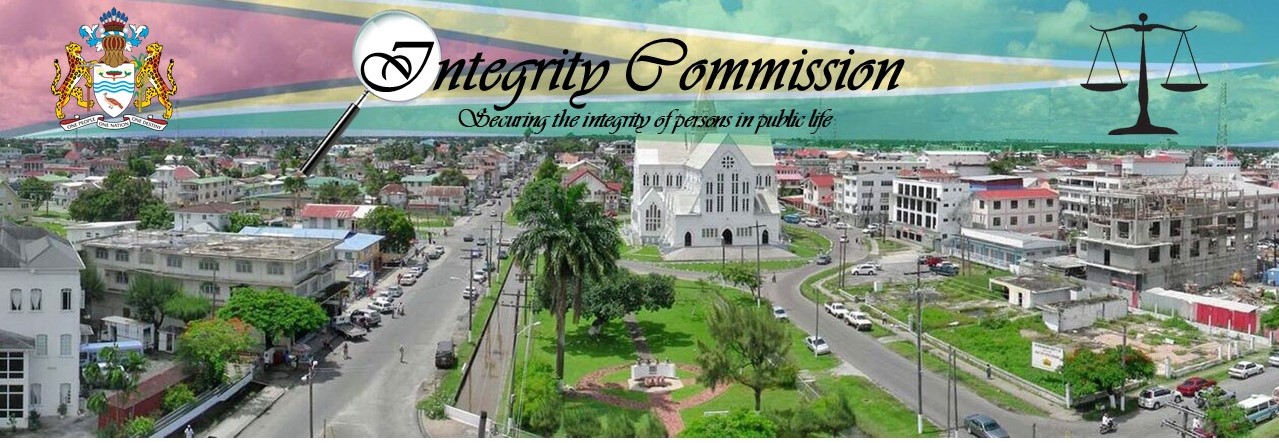The Integrity Commission Act was assented to on the 24th September, 1997. The Act provides for the establishment of the Integrity Commission and make provisions for the purpose of securing the integrity of persons in public life. The Act also provides for the appointment of a Chairman to head the Commission, not less than two (2) and not more than four (4) other members of the Commission, a Secretary to oversee the day to day work of the Commission and other officers for the proper performance of the Commission.
The Chairman of the Commission shall be a person who is or who was or who is qualified to be a Puisne Judge of the High Court or any other fit and proper person and the other members appearing to the President as having experience and show capacity in law, public administration, social service, finance or accountancy or any other discipline. The Chairman and other members are appointed by the President after consultation with the minority Leader and they can either be full time or part time. The names of the Chairman and other members upon the establishment of the Commission and any change in membership shall be published in the Gazette and in a daily newspaper.
The Commission has the power to do anything for the proper performance of its function and in discharging its function; it is not subject to the direction or control of any other person or authority. The Commission has the authority to regulates its own procedure and may make rules for that purpose.
Public Offices and Positions listed under schedule 1 of the Commission’s Act should disclose their financial assets and liabilities on or before June 30, each year. When a public officer ceases to be a person in public life, he/she should disclose his/her assets and liabilities to the Commission within thirty days from the date that individual cease to be a person in public life.

